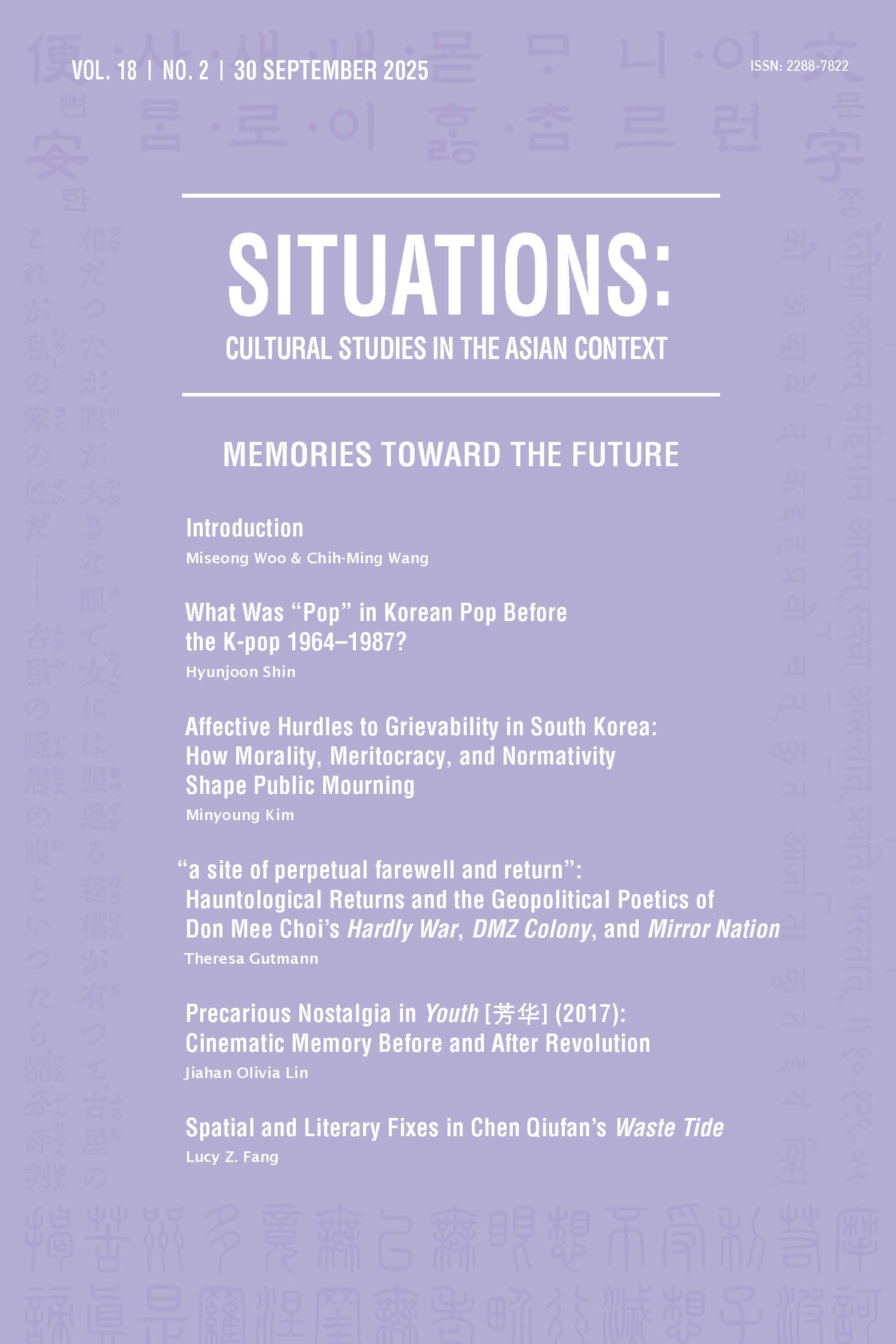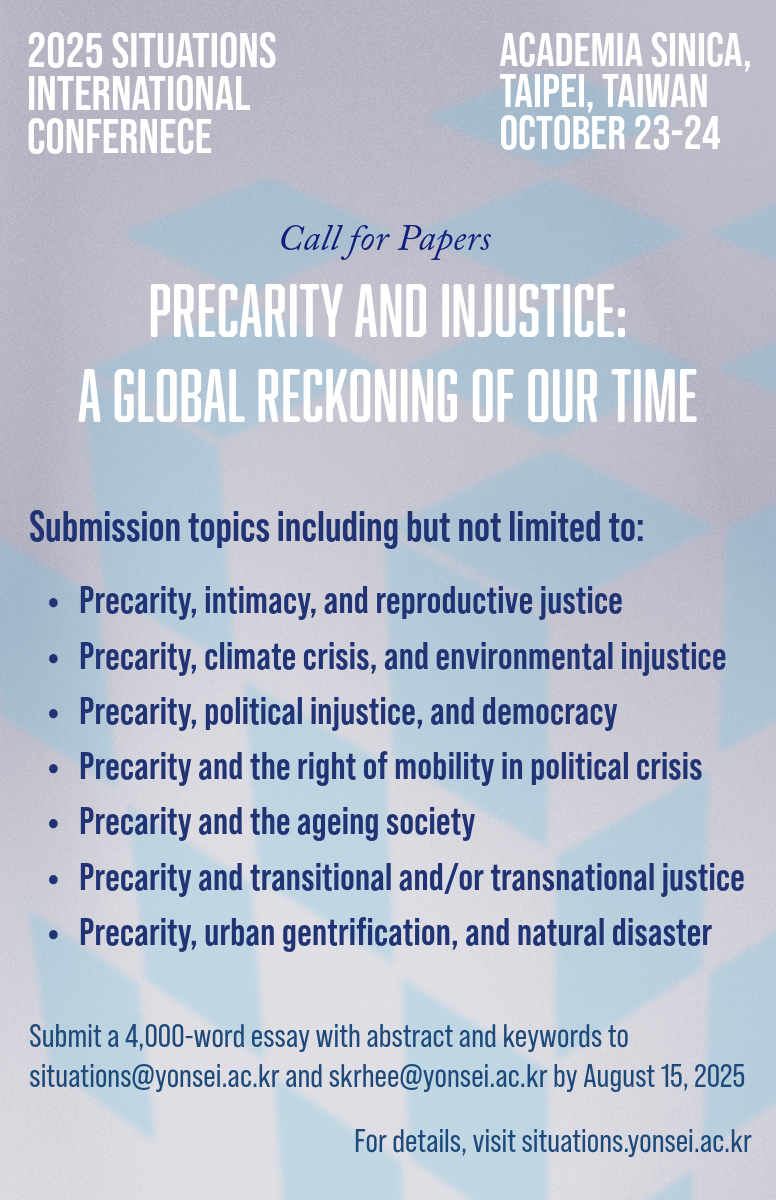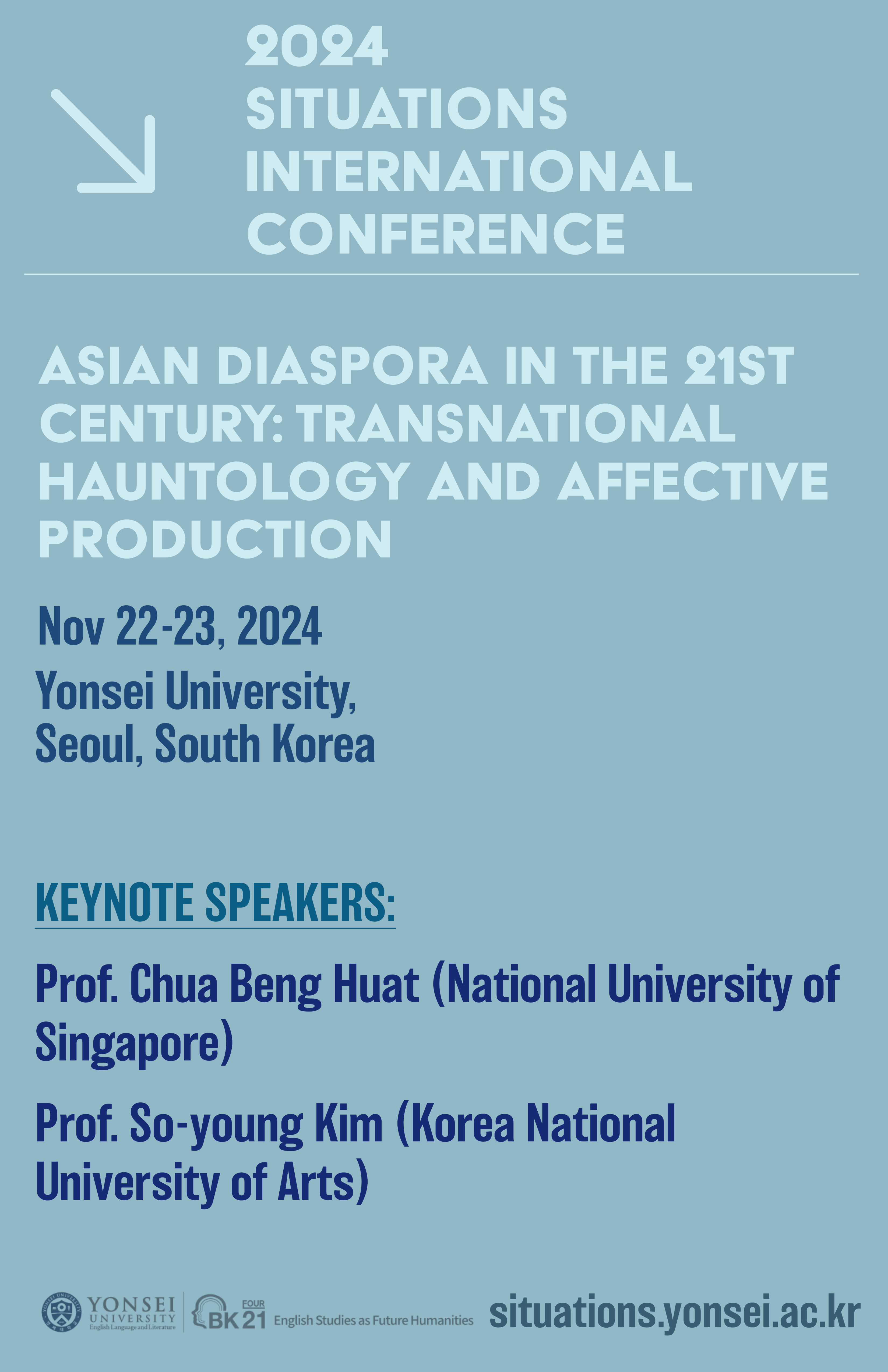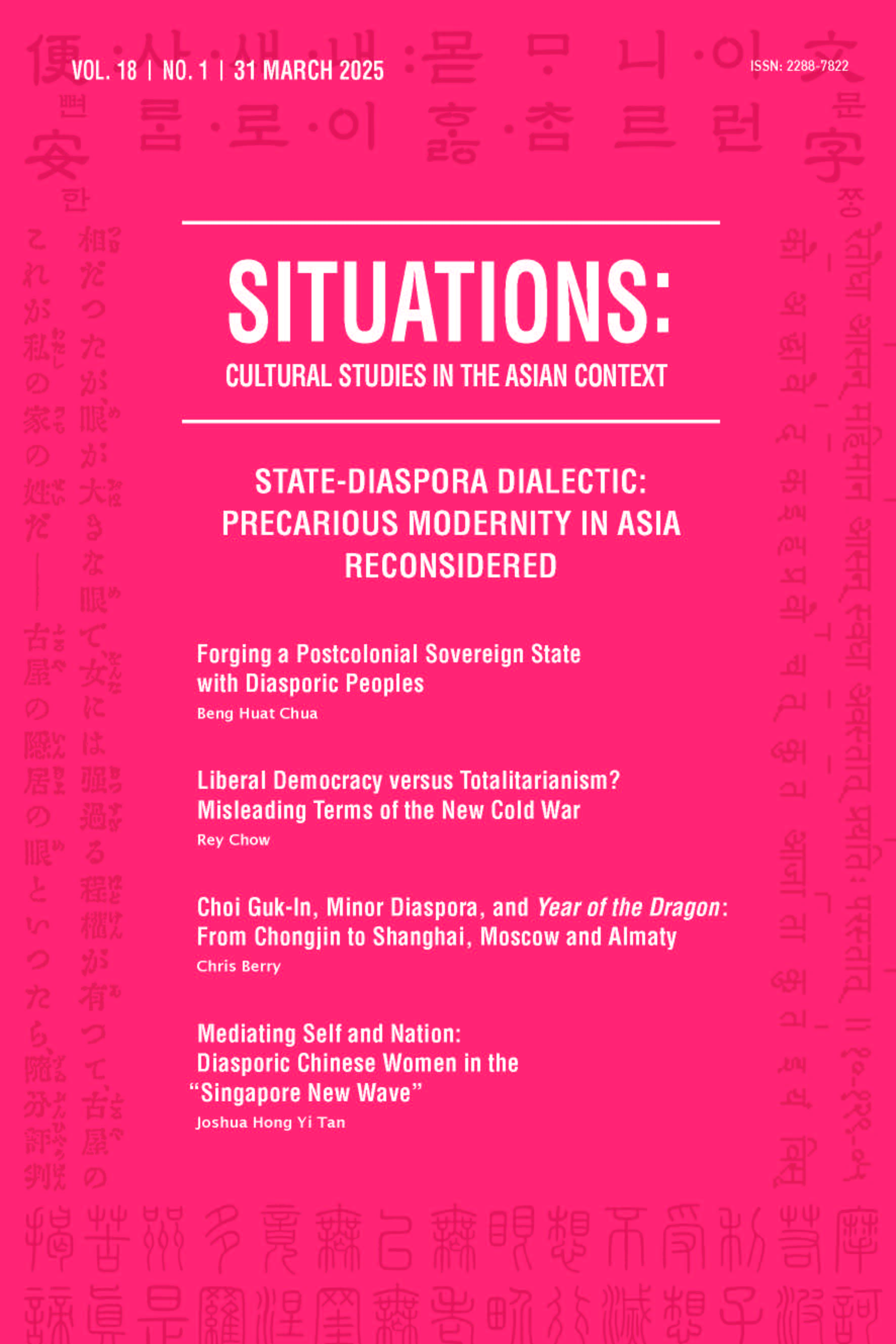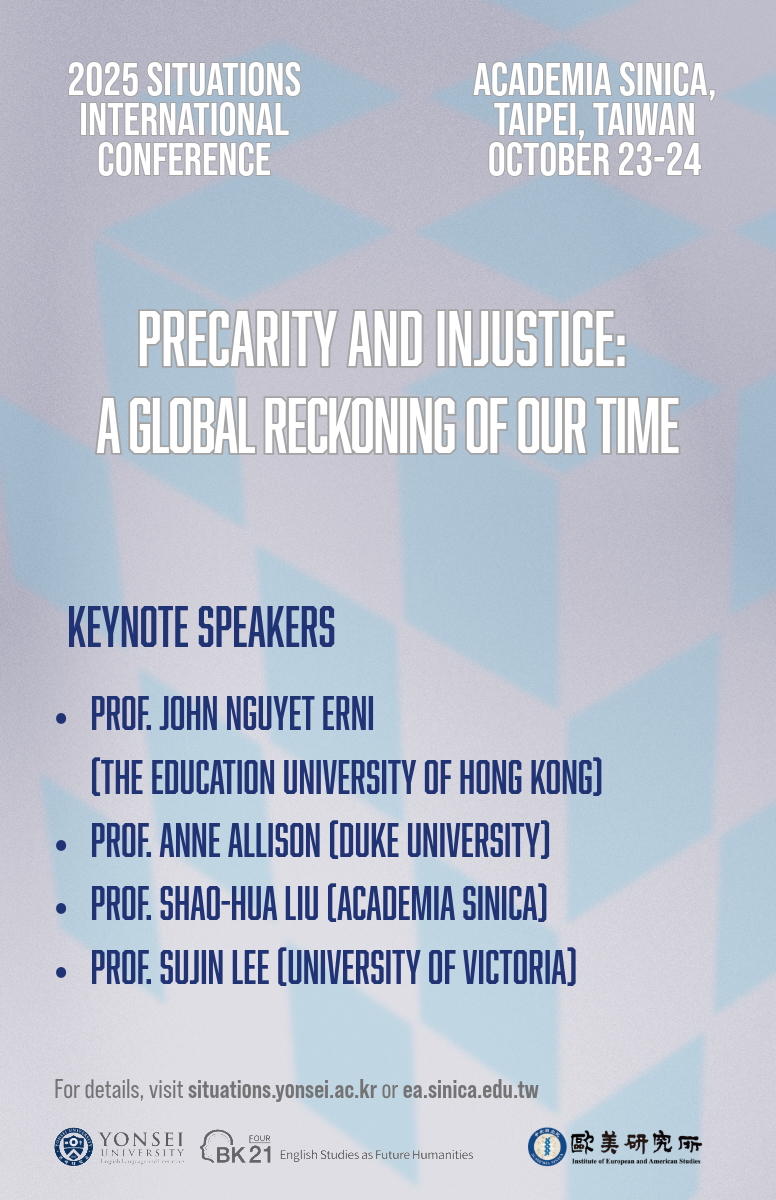[CFP] 2025 Situations International…
2025 Situations International ConferencePrecarity and Injustice: A Global Reckoning of Our Time October 23-24, 2025Institute of European and American Studies, Academia Sinica, Taipei, Taiwan The Situations journal has done several issues around the idea of precarity in the previous years. It is an issue of grave concern these days, as we witness the damages of climate change, wars, disease, ageing, racism, militarism, rising unemployment, and low fertility rate unfolding before us. While much of the discussion of precarity is geared towards raising our awareness of crises, articulated with affect, job insecurity, and mobility, little attention is paid to its articulation with injustice, as in the cases of the transnationalized, racialized and gendered chain of care and affective labor on a global scale and the rise of global surrogacy industries as a solution to infertility. In addition, while justice is a goal that any society aspires to, the uneven development of geography, technology, labor condition, gender and sexuality consciousness has not only polarized our society along race, gender, class, and generational lines, but also recentered precarity as a symptom of injustice, begging us to rethink what justice means in light of the great disparity and increasing precarity on all fronts. The return of Donald Trump to U.S. presidency moreover brought precarity to the foreground, and specifically exposed the precarity of minorities and undocumented migrants, denied the rights of Palestinians to return to Gaza, and sabotaged the sovereignty of Ukrainians who had fought a bloody war to keep their country and resources intact, now seeming in vain. Whereas the unending war in Ukraine illuminates the injustice of the international geopolitics through which the Ukrainian lives and sovereignty are made precarious, Trump’s call to “take over Gaza” overwrites precarity with a discourse of insecurity that regards securitization as privatization and transaction.The expanding gentrification in the name of development and the pandemic in Asia and beyond, moreover, painfully exposed the precarity of migrant labor, ageing population, first-line care workers and medical respondents, as well as the hegemony of bourgeois ideology that is making the city hospital to some, but not others. The emphasis on tight control over borders since the Covid years has created precarity for racialized/gendered/nationalized subjects (in the case of the Atlanta Spa Shooting of 2021) and explicit forms of xenophobia in many parts of the world where biometrics is fast becoming the cutting-edge means of control that enables subtle forms of racism and puts democracy in jeopardy. In Asia, the precarity discourse is usually associated with the dwindling of the future for the younger generation, which manifests in the rising cost of living, hiking unemployment rate, lack of an intimate life, and the quick drop of fertility. These issues raise questions about reproductive justice (the mounting pressure of raising a family and the increase in the rate of divorce and singlehood), social alienation and the rise of digital intimacy, and the outsourcing of care and reproductive labor to migrant workers and surrogate parenthood that is reconfiguring the notion of kinship. Therefore, rather than looking at precarity as a singularized frame of analysis, informed by neoliberalism, it might be helpful to capture how precarity intersects with injustice, along the global chain of supply and securitization discourse on border control; and how a renewed politics of solidarity and coalition, along with an expanded vision of family andkinship, informed by our relational interdependence, may emerge from our reckoning with and theorization of the current conjunctures. It is an issue that requires a global approachThrough this collaboration between South Korea’s Yonsei University and Taiwan’s Academia Sinica, Situations hopes to provide a global approach to our precarious modernity and grounded analysis of the vexing problems at hand. Papers addressing the following topics in Asia and beyond, though not exclusive to them, are welcomed: 1. Precarity, intimacy, and reproductive justice2. Precarity and the right of mobility in political crises3. Precarity and ageing society4. Precarity and transitional and/or transnational justice5. Precarity and solidarity and coalition building6. Precarity, urban gentrification, and natural disaster7. Precarity and the remaking of geography and place (refugee camps, occupy movement for instance)8. Precarity, militarism, and peace activism9. Precarity, political injustice, and democracy10. Precarity, indigeneity, and minority survival11. Precarity, climate crisis, and environmental injustice12. Precarity, digital divide, and sociocultural exclusion13. Precarity, migrant labor, and citizenship14. Surrogacy, family values, and heteronormativity15. Precarity and queer imaginations Early inquiries with 200-word abstracts are appreciated. We invite you to submit your 4,000-word Chicago-style conference presentation with its abstract and keywords by August 15, 2025 (the acceptance of the presentation will be decided based on the 4,000-word paper). Each invited participant is then expected to turn his or her conference presentation into a finished 6,000-word paper for possible inclusion in a future issue of the SCOPUS-indexed journal, Situations: Cultural Studies in the Asian Context. All inquiries and submissions should be sent to both situations@yonsei.ac.kr and skrhee@yonsei.ac.kr. Submissions should follow the Chicago Manual of Style (16th ed.), using only endnotes.Notes: Accommodation will be provided for participants whose papers are accepted. Presenters will share twin rooms.
T체rkiye?셬in pop체ler bahis sitelerinden
Grandpashabet sitesine g체ncel adresi ile g체venli eri힊im sa휓lamak istiyorsan캇z
grandpashabet giri힊
ba휓lant캇s캇n캇 kullanabilirsiniz.
Yeni adres bilgileri i챌in
grandpashabet g체ncel giri힊
sayfam캇z s체rekli g체ncellenmektedir.

